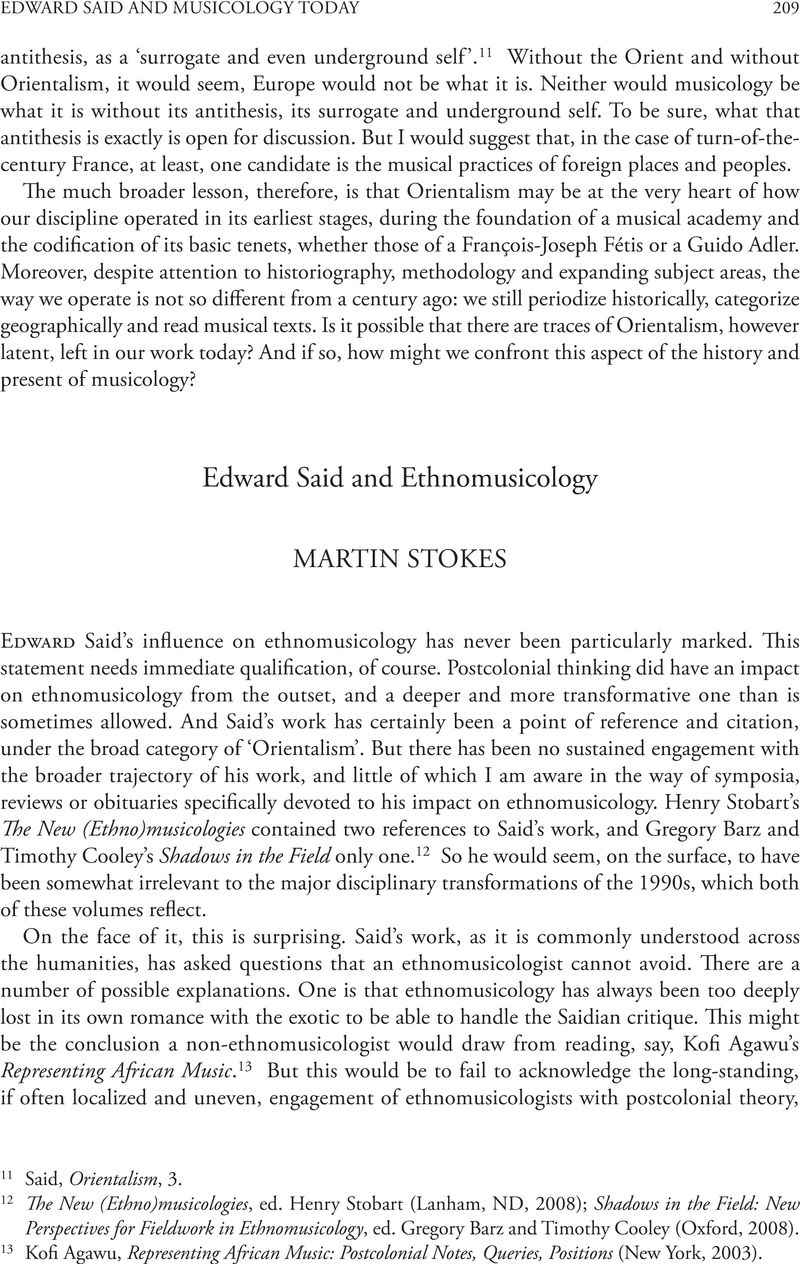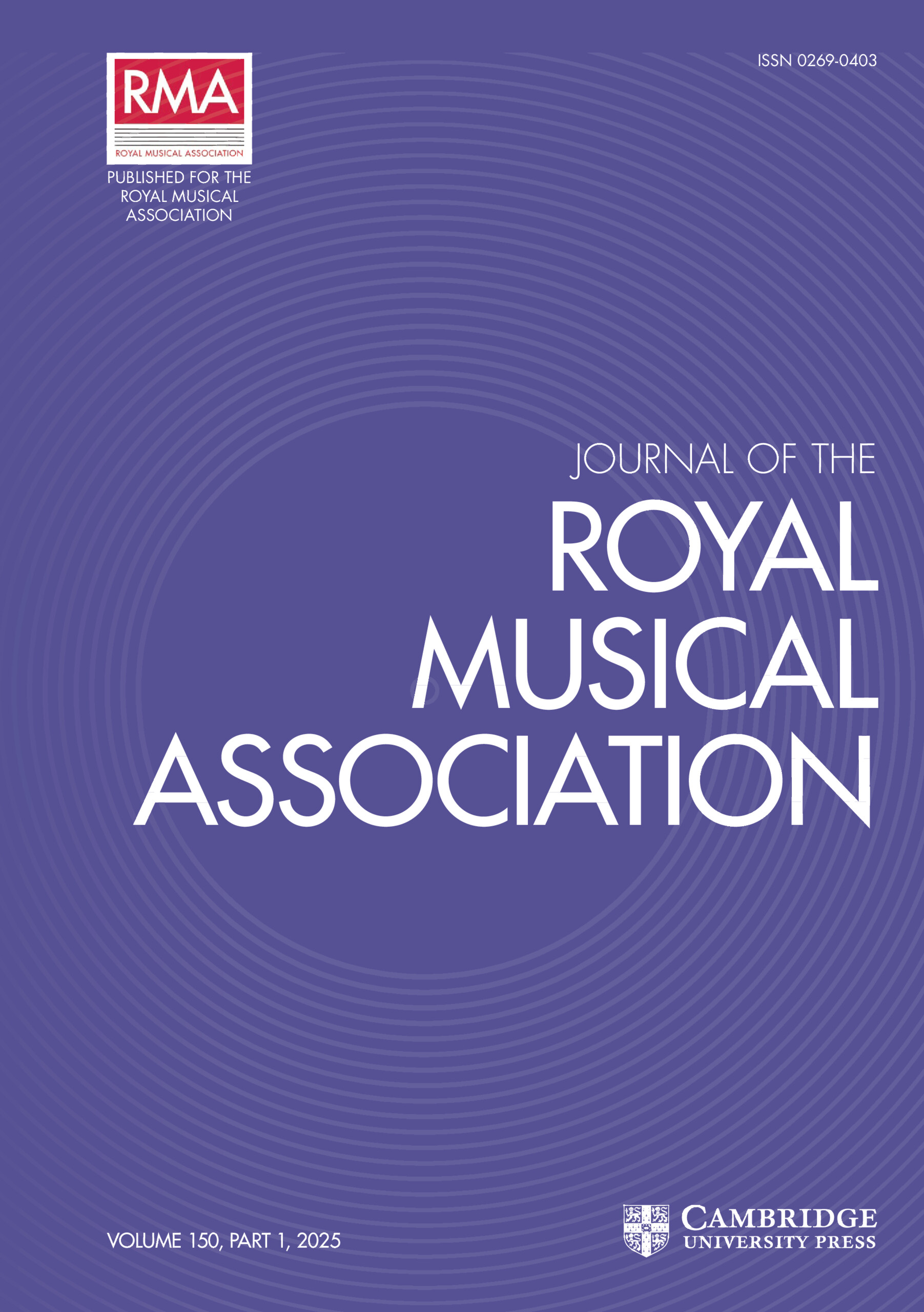No CrossRef data available.
Article contents
Edward Said and Ethnomusicology
Published online by Cambridge University Press: 01 January 2020
Abstract

- Type
- Round Table: Edward Said and Musicology Today
- Information
- Copyright
- Copyright © 2016 The Royal Musical Association
References
12 The New (Ethno)musicologies, ed. Henry Stobart (Lanham, ND, 2008); Shadows in the Field: New Perspectives for Fieldwork in Ethnomusicology, ed. Gregory Barz and Timothy Cooley (Oxford, 2008).
13 Kofi Agawu, Representing African Music: Postcolonial Notes, Queries, Positions (New York, 2003).
14 Thomas Solomon, ‘Where is the Postcolonial in Ethnomusicology?’, Ethnomusicology in East Africa: Perspectives from Uganda and Beyond, ed. Sylvia Nannyonga-Tamusuza and Thomas Solomon (Kampala, 2012), 216–51.
15 Edward W. Said, ‘Homage to a Belly-Dancer’, London Review of Books, 12 (1990), 6–7.
16 Anthropology and the Colonial Encounter, ed. Talal Asad (London, 1973); Michael Gilsenan, Recognizing Islam (London, 1983). Slightly later, but formative in my own first efforts to think through postcolonialism in Middle East music studies, was Aziz al-Azmeh, Islams and Modernities (London, 1993).
17 John Blacking, How Musical Is Man? (Seattle, 1974).
18 Patrick Deer, Gyan Prakash and Ella Shohat, ‘Introduction: Edward Said: A Memorial Issue’, Social Text, 24 (2006), 1–9.
19 Ibid., 4.
20 Deer, Prakash and Shohat, ‘Introduction’, 4.
21 Blacking, How Musical Is Man?
22 Rachel Beckles Willson, Orientalism and Musical Mission: Palestine and the West (Cambridge, 2013).
23 Geoff Baker, El Sistema: Orchestrating Venezuela's Youth (Oxford, 2014).


